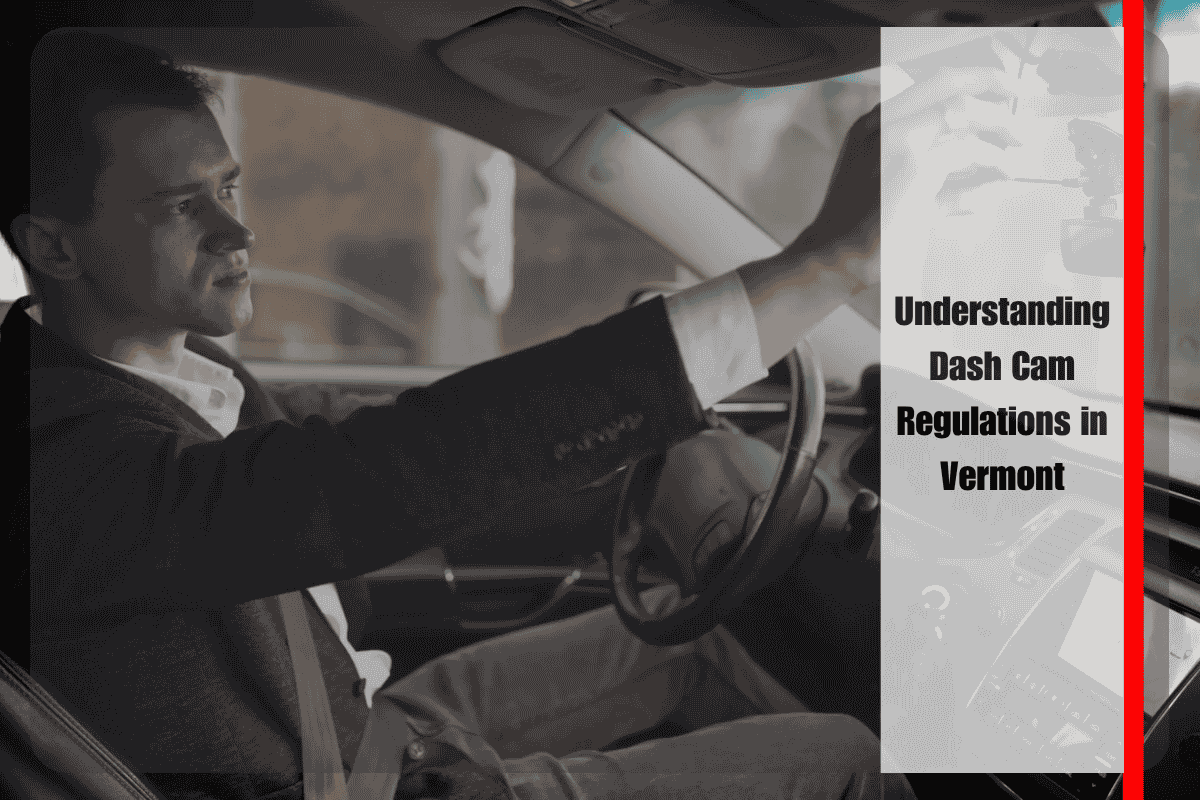Dash cameras, or dash cams, have become popular tools for drivers looking to record their journeys for safety, security, and evidence purposes. Whether it’s for capturing an accident, documenting road conditions, or protecting yourself from false claims, dash cams can be invaluable. However, it’s important to know the laws surrounding their use, particularly in Vermont. Understanding Vermont’s regulations on dash cams can help you avoid any legal issues while still benefiting from the safety and security a dash cam provides.
Are Dash Cams Legal in Vermont?
Yes, dash cams are legal in Vermont. There are no specific state laws prohibiting the use of dash cameras in vehicles. Drivers in Vermont are free to install and use dash cams for personal, security, or insurance purposes. This means you can record your driving, traffic situations, and accidents, as long as you are not violating any other laws in the process.
What Are the Restrictions on Using Dash Cams in Vermont?
While Vermont allows the use of dash cams, there are some general legal considerations to keep in mind, particularly when it comes to privacy, driving safety, and data handling.
Obstruction of View: Dash cameras must not obstruct the driver’s view of the road. Vermont law requires that any items in your car, including dash cams, must be securely mounted and not interfere with your ability to drive safely. For example, placing a dash cam in a way that blocks the windshield or impairs your view can lead to a violation of driving safety laws. Dash cams should be mounted on the windshield in a way that ensures they don’t obstruct the driver’s line of sight.
Privacy Concerns: While dash cams can record public spaces, they must be used responsibly to respect the privacy of others. If your dash cam records inside your vehicle or records audio of private conversations without consent, you could run into privacy issues. Vermont follows one-party consent laws when it comes to recording audio. This means that as long as one party in the conversation (you, the driver) consents to the recording, it’s legal. However, if you’re recording audio of passengers in your vehicle, they should be informed, and it’s good practice to avoid recording private conversations without their knowledge.
Recording Audio: Vermont law allows you to record audio inside your vehicle as long as you are part of the conversation. However, if you are recording passengers in your vehicle or capturing private conversations without consent, you could potentially face legal challenges. It’s a good idea to disable the audio recording function on your dash cam unless it’s essential for your needs.
Can Dash Cam Footage Be Used as Evidence in Vermont?
Dash cam footage can be used as evidence in Vermont, especially in cases involving accidents, disputes with other drivers, or insurance claims. If you’re involved in an accident and the footage from your dash cam clearly shows who was at fault, the footage can be a powerful tool in court or when dealing with insurance companies. However, it’s important to ensure that the footage is clear, undistorted, and properly preserved.
That said, not all dash cam footage is automatically admissible in court. If you plan to use your footage as evidence, it’s crucial that the recording is clear, timestamped, and legally obtained. If the footage contains any illegal content or was obtained in a manner that violates Vermont’s privacy laws (for example, if it records audio without consent), it could be challenged in court.
What About Dash Cams in Commercial Vehicles?
In Vermont, the rules for commercial vehicles may be slightly different. Commercial drivers are often required to follow stricter regulations, especially regarding the use of electronic devices while driving. However, dash cams in commercial vehicles are still generally allowed as long as they comply with driving safety laws and do not obstruct the driver’s view.
Commercial vehicle operators might also have additional data retention and privacy rules that apply. For example, a company that installs dash cams in its fleet of vehicles may need to inform employees about how the footage will be used, stored, and retained.
Dash cams are legal in Vermont, and they provide an excellent way to record your driving for safety, security, and legal protection. However, as with any piece of equipment in your vehicle, it’s important to use your dash cam responsibly. Ensure that it doesn’t obstruct your view of the road, avoid unnecessary audio recordings of private conversations, and always comply with privacy laws. Dash cam footage can be an invaluable tool in the event of an accident or dispute, but it’s important to know how to use it within the boundaries of the law. By following Vermont’s regulations and using common sense, you can safely benefit from the protection that dash cameras offer.
Sources
[1] https://facit.ai/insights/dash-cam-laws-by-state
[2] https://www.ddpai.com/blog/dash-cam-laws/
[3] https://www.expertmarket.com/dash-cams/dash-cam-laws-by-state
[4] https://matrackinc.com/dash-cam-laws-by-states/
[5] https://www.explica.co/your-dash-cams-legal-limits-state-by-state-laws-and-guidelines/












